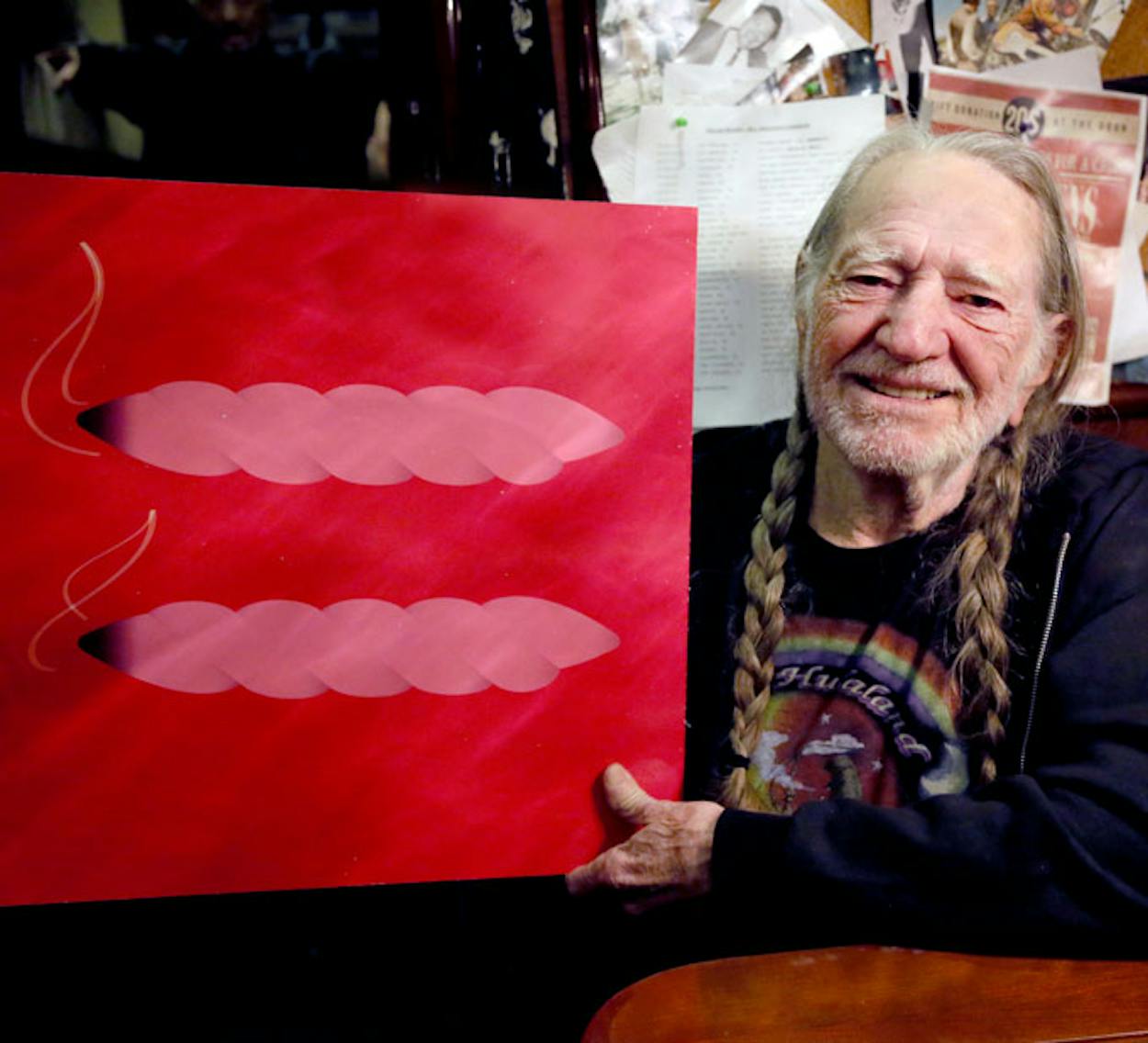Willie Nelson loves love. “Love is what I live on. Love is what keeps me going,” he wrote in his 2006 book The Tao Of Willie. And Wednesday night, in an interview in Austin on his tour bus, Willie said he believes love doesn’t discriminate, “and it shouldn’t be discriminated against.”
Nelson has been watching the Supreme Court arguments over same-sex marriage and the Defense of Marriage Act, the federal law defining marriage as the union of a man and a woman. “[Gay people] should be just as miserable as the rest of us,” quipped Nelson, before giving a more nuanced explanation of what he says has been a life-long, unwavering belief that all people deserve equal protection under the law.
After the interview, and just before heading into Austin’s ACL Live at the Moody Theater to play a fundraiser for the Darrell K Royal Research Fund for Alzheimer’s Disease, Nelson posed for a Texas Monthly photographer with a series of signs created by the Austin-based design agency Helms Workshop and printed by Austin’s East End Ink. The first is a straightforward reproduction of the pink equal sign—the logo of the lesbian, gay, bisexual, and transgender advocacy group the Human Rights Campaign—that has gone viral on Facebook and Twitter over the past few days. Helms also designed two Willie-specific variations on the image, one with his trademark braids and another with a pair of marijuana cigarettes. Both images are available for download below for use as avatars on your Facebook or Twitter account. Or whatever else you want to do with them. It’s a free country, you know.
 Texas Monthly: You’re closely following the Supreme Court’s consideration of gay rights and same-sex marriage.
Texas Monthly: You’re closely following the Supreme Court’s consideration of gay rights and same-sex marriage.
Willie Nelson: I am. And it’s ridiculous to me that this is something we’re having a conversation about this in this day and age. I thought it was something that was settled a long time ago.
TM: Clearly not.
WN: Clearly not. And obviously, even the Supreme Court doesn’t know what to do about it. They say, ‘Don’t ask me. Ask somebody else.’ They don’t want to get in the middle of the states on it. And what are they going to do, come in and override states that have said it’s okay? It’s a mess.
TM: With same-sex marriage legal in some states and not in others, equality means different things different places.
WN: For same-sex couples, taxes are different, benefits are different, survivor benefits are different. It’s crazy.
TM: You’ve been a supporter of LBGT issues over the years. Outspoken even.
WN: I never had a problem with any of it. I’ve known straight and gay people all my life. I can’t tell the difference. People are people where I came from.
TM: But where you came from was small town Texas in the thirties and forties. Was Abbott more forward-thinking than we give it credit for?
WN: We were a lot like New York City. [laughs] With shorter buildings.
TM: But especially for a Texan, and more so, a Texan playing country music, you came around to this idea relatively early on.
WN: It never came up. Gay or straight? Married, not married? It was never a question. And now there’s fussin’, fightin’, and arguin’ over it? Let’s get off that and talk about guns.
TM: For better or worse, you’ve also grown into a reputation as something of an authority on marriage itself. 
WN: I’ve been there and back a few times. It’s not perfect, so why should we expect it to be perfect for everybody?
TM: But to be clear, you think everybody should be able to get married?
WN: Absolutely. I never thought of marriage as something only for men and women. But I’d never marry a guy I didn’t like.
TM: A lot of people think this battle echoes the fight for civil rights in the sixties.
WN: It does. It’s about human rights. As humanity, we’ve come through so many problems from the beginning to here. I guess it finally had to come around to this. This is just another situation, another problem. We’ll work it out and move on.
TM: And what do you think they’ll say when they look back on this?
WN: We’ll look back and say it was crazy that we ever even argued about this. 

- More About:
- Politics & Policy
- Music
- Willie Nelson






